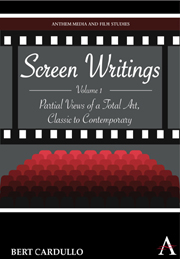Book contents
- Frontmatter
- Contents
- List of Illustrations
- Introduction: The Necessary Film
- Part I Children and the Cinema
- Part II Literature and Adaptation
- Part III Views and Interviews
- 6 Married to the Job: Ermanno Olmi's Il posto and I fidanzati Reconsidered
- 7 Reflecting Reality—and Mystery: An Interview with Ermanno Olmi
- 8 Lower Depths, Higher Planes: On the Dardennes' La Promesse, Rosetta, The Son, and L'Enfant
- 9 The Cinema of Resistance: An Interview with Jean-Pierre and Luc Dardenne
- Part IV World Enough and Time
- Bibliography of Related Criticism
- Index
- Plate section
7 - Reflecting Reality—and Mystery: An Interview with Ermanno Olmi
from Part III - Views and Interviews
Published online by Cambridge University Press: 05 March 2012
- Frontmatter
- Contents
- List of Illustrations
- Introduction: The Necessary Film
- Part I Children and the Cinema
- Part II Literature and Adaptation
- Part III Views and Interviews
- 6 Married to the Job: Ermanno Olmi's Il posto and I fidanzati Reconsidered
- 7 Reflecting Reality—and Mystery: An Interview with Ermanno Olmi
- 8 Lower Depths, Higher Planes: On the Dardennes' La Promesse, Rosetta, The Son, and L'Enfant
- 9 The Cinema of Resistance: An Interview with Jean-Pierre and Luc Dardenne
- Part IV World Enough and Time
- Bibliography of Related Criticism
- Index
- Plate section
Summary
After neorealism, Ermanno Olmi is perhaps the best exemplar of the neorealist style, with its disdain for dramatic contrivance and fictive invention. His films offer slices of life, with indefinite or inconclusive endings; they simulate documentary methods in staging and photography; and they aspire not to proposition or evocation but only toward accurate representation. Olmi's later works depart from the neorealist style of Il posto (1961) and I fidanzati (1963), but even they are characterized by a kind of non-discursiveness.
As befits a master filmmaker, Ermanno Olmi is reluctant to give interviews. He lets his films speak for themselves. A shy, self-effacing man, it's always been that way with Olmi. He was especially sparse on words when awarded the Golden Lion at the 1988 Venice festival for The Legend of the Holy Drinker and the Golden Palm at the 1978 Cannes festival for The Tree of Wooden Clogs. And there hasn't been a published interview with Olmi for quite some time.
One reason for the reticence is his embarrassment at having to answer those all too frequent, nagging “how are you?” and “what have you been doing?” questions. For between the Cannes premieres of The Tree of Wooden Clogs (1978) and Cammina Cammina (1983) lay five years of inactivity, then another four years until Long Live the Lady (Lunga vita à la signora, 1987) won the Silver Lion at Venice (to be followed a year later by the Golden Lion).
- Type
- Chapter
- Information
- Screen WritingsPartial Views of a Total Art, Classic to Contemporary, pp. 99 - 112Publisher: Anthem PressPrint publication year: 2010



